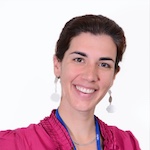Horizon scanning
The combination of a rising human population, and a year-on-year increase in consumption means that global food demand is likely to remain one of the major future challenges facing humanity. With regions such as sub-Saharan Africa seeing largest increase in both population and food demand over the next half century, posing a range of severe environmental, political and socio-economic challenges. It is therefore important to realise that decisions made today can have profound effects on the future.
Approach
If we are to successfully navigate these challenges, it is important that we ensure our decision makers have access to the most up-to-date and relevant knowledge to aid them in the decision-making process. The first step towards achieving this is through the identification of the most critical research questions that, if answered, would have the greatest positive impact on addressing these trade-offs and ensuring future productivity and resilience of the sub-Saharan African food system.
"Achieving food and nutrition security, reducing inequality, and preserving terrestrial ecosystems: 100 critical research questions for decision makers in sub-Saharan Africa."
Despite the urgent need for evidence-based policy, there is often very little information exchange between decision-makers and researchers. This is driven by the fact that there exists a potential mismatching between the priorities of the producers (i.e. academic researchers) and consumers (i.e. the policymakers and local practitioners) of research. In order to narrow this gap, we used an interdisciplinary and inclusive horizon scanning approach, that engaged and involved representatives from a wide range of organisations and professions in and outside sub-Saharan Africa.
Horizon Scanning is a widely used technique for looking ahead. While this tool was initially developed for businesses to identify future issues and opportunities, today it's utilised by a multitude of sectors and fields, including conservation. The end goal of our horizon scanning activity was not only to identify the 100 most critical research questions, but to ensure that in doing so we did it in a transparent and inclusive manner, that gave a voice to those stakeholders who don’t often get a chance to get involved in the research development process.
Progress so far
Over 300 people responded to the call, with the majority of responses received through the Sentinel website. Of the responses received, 75% of them came from stakeholders based in sub-Saharan Africa (Figure 1 – Map). Most of the participants self-identified as academic researchers and/or as producers of research (Figures 2 & 3 – Faceted box plots).
Preliminary analysis
In total 1,339 questions were received (in both English and French), spanning a breath of topics, with on average each participant submitting four questions each (Figure 4). Preliminary analysis of the responses revealed two key findings:
1. Food security/nutrition is by far the major topic reflected in our pool of research questions. Of the 12 thematic topic areas identified through text mining, questions relating to food security and crop production formed at least 30% of submitted research questions.
2. Reducing inequality was considered to be a lower priority research topic. Participants were asked to prioritise research funding and to score issues of food/nutrition security, reducing inequality and preserving terrestrial ecosystems in terms of importance. Overall, the majority of participants considered and scored reducing inequality as a lower priority, than both food security and preserving the environment.
A more detailed report of the process and preliminary responses can be found by downloading the Sentinel Horizon scanning report 16 April 2020.
Next steps
The Stage 2 survey saw us ask participants to score the importance of a random subset of 28 of the research questions from Stage 1. Please see this blog post for more details and the link to the survey.
Stage 3 involved a workshop.
Collaborators
 Nafeesa Esmail
Nafeesa Esmail
nafeesa.esmail@gmail.com
Nafeesa is an interdisciplinary conservation scientist with a range of interests across terrestrial, coastal and marine systems. She is experienced in applied social science research for proactive approaches to support conservation practice and policy. Of specific value to the SENTINEL project team, Nafeesa brings expertise leading and designing participatory horizon scanning exercises to strategically assesses and prioritise future emerging issues or trends; as well as conducting stakeholder and institutional analyses; interviews and questionnaires; focus group and other discussion facilitation; local community and environment exercises and techniques; expert elicitation; qualitative trend and thematic analyses.
 Petra Schmitter
Petra Schmitter
P.Schmitter@cgiar.org
Petra is a Group Leader Agricultural Water Management at The International Water Management Institute (IWMI). Which focusses on innovative water solutions for sustainable development. With offices in 13 countries and a global network of scientist and partners we are dedicated to deliver science for a transformative agenda around three high priority water challenges: Food – To improve food security will sustainably managing water resources and ecosystems; Climate – To adapt to and mitigate climate change while building resilience to water related disasters and disruption; Growth – To reduce poverty and advance inclusion with equality as agriculture transforms, energy transitions and urbanization intensifies.



